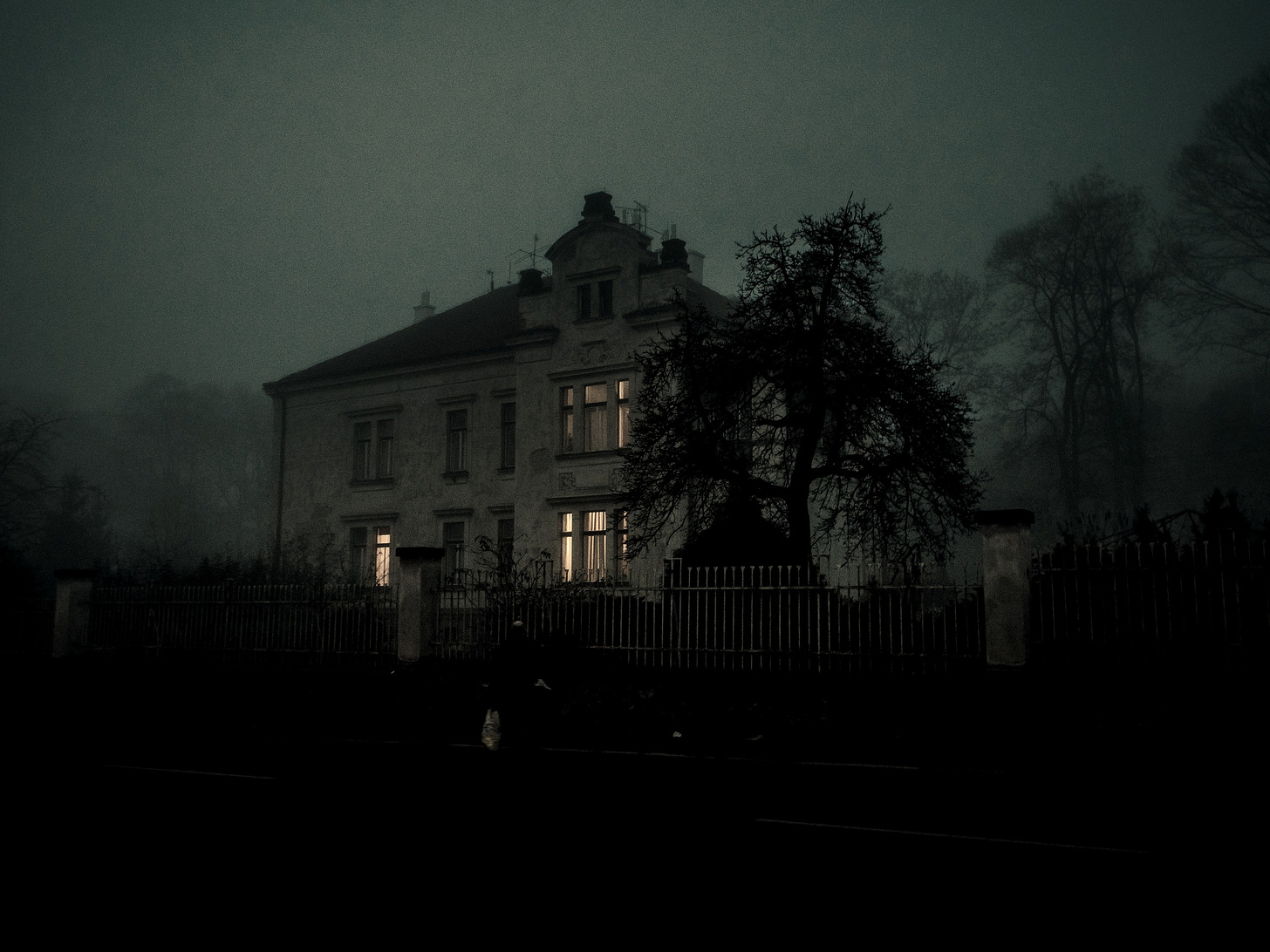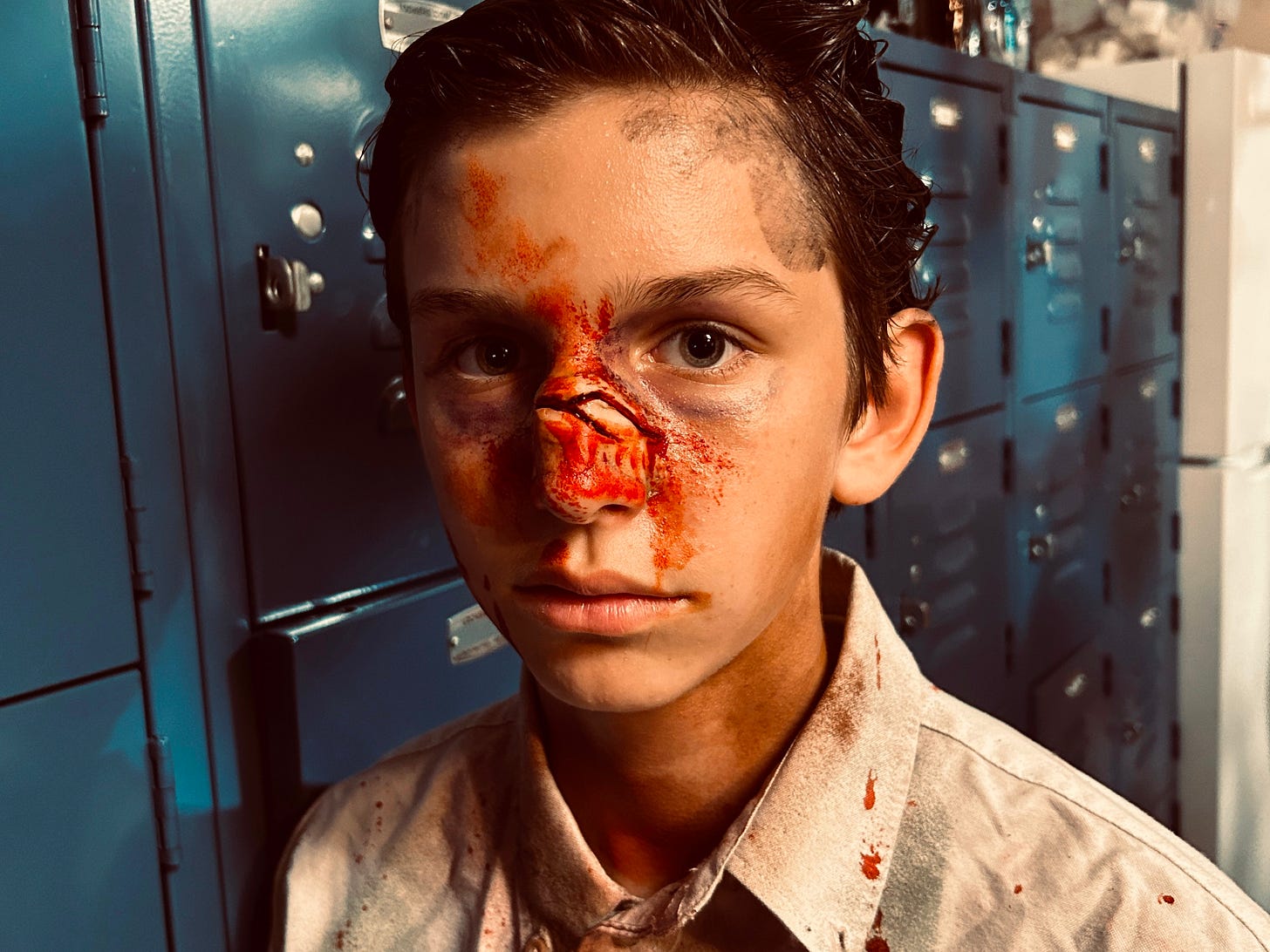
My first love in reading was horror.
My first adult love, anyway, after I tired of Nancy Drew, The Babysitter’s Club and horror-adjacent Apple Paperbacks like The Dollhouse Murders. I memorized the first part of The Raven for fun in sixth grade; my partner in crime that year, Cindy, was just as enthusiastic about it as I was. The first Stephen King book I read was Pet Sematary, and I was hooked. I read his stuff for years, and only drifted away from it sometime after college, when I began expanding my tastes.
I liked horror movies, too.
Nightmare on Elm Street was my favorite because it had the mysterious and alluring dream element to it, which made it more complex, more magical feeling than other slasher flicks that relied on gore and jump scares. As my twenties progressed, horror movies got better. The imagery got better. It was no longer obvious the blood was ketchup. In fact, they seemed to let go of gore in favor of ghosts and hauntings with more subtle, psychological elements.
The night I saw The Blair Witch project, I was glad my friends were still up talking in the living room when I went to bed. I left my door open, so I could hear them, maintain connecting with the rational, living world as I dropped off to sleep. Even so, as my consciousness waned, I heard my name whispered in my ear. April… and my eyes shot open wide. It took me hours to fall asleep.
I thought The Ring was genius, and Samara’s stilted, jerky walk, with her long, tangled black hair hanging over her face, crawling out of the well, out of the TV, gives me goosebumps, thinking about it to this day. I just now realized the imagery from this movie has obviously influenced some of the exposition in my current work-in-progress, which yes, is horror. Sort of.
I saw The Grudge when I was in my late twenties, and scenes from that movie, the pale-faced girl and the clicking/groaning noise that came out of her open mouth, haunted me for years. I’d be lying in bed, and images of her swirling around the upper corners of my bedroom would pop into my head, unbidden. That’s when I stopped watching horror movies. I was thirty-one years old and about to have kids; I did not need that kind of shit keeping me up at night.
I didn’t read horror during my thirties.
After four miscarriages, my fears around getting pregnant and trying to stay pregnant were scary enough without adding to it in my free time. Once, when my youngest still slept in a crib, I lay in bed early one night and began reading a story for my book club. Two chapters in, I realized it was a dark mystery about a guy who investigates SIDS deaths. It was graphic. Nope (which is also a horror movie, BTW.)
I already had a very fragile feeling about my young children — one borne of intuition instead of intellect. They had been so difficult to have, and I cherished them so much, that I had the distinct feeling the universe might yank them away from me. I didn’t need some asshole’s made up story about dying kids feeding my fear.
Enter Mortis Manor into my life.
Some years ago, our friends down the street started building a haunted house at their place every Halloween. This thing was professional grade. They built passageways inside and around their home, with a facade on the front. They started construction in November for the following October. People lined up all the way down the street to get in and traffic clogged our short suburban lane. The year the fire marshal got involved, they realized Mortis Manor and their company, Fatal Fear, was destined for something bigger. They moved to a larger place where they are currently assembling a haunt with three times the linear square footage of their previous location.
My family has enjoyed being involved in the haunt over the years, as actors and general help, managing the line and such. And when they asked me to write the blurbs for their website, I rubbed my hands together with maniacal glee. Because Mortis Manor is not just a random collection of ghosts and gore, it is tied together with story. They pulled me back into the world of horror and reminded me how delicious it could be. I found it so compelling, I suggested writing a novel-length origin story about Mortis Manor.
I had never written horror.
As much as I enjoyed reading it, I wasn’t sure I knew how to write it. I bought an online course on “How to Write Horror.” I got through one lesson. I read things for inspiration and studied their mechanisms. I got two stories into Chilling Horror Short Stories, when I yawned and stopped for lack of interest. Then, I read Ghostland, a non-fiction book about the most haunted places in the United States, which was an excellent historical analysis of why we are obsessed with certain methods of haunting. Cultural guilt figures in heavily. Then, I re-read Stephen King’s Salem’s Lot, a classic vampire story.
Salem’s Lot made me realize, it was character development that kept me going back to King. Even in a vampire story that is not at all a new twist — it’s got all the tropes about garlic and crosses and stakes through the heart — most of the story is about people and their internal fear. How each character processes it a little differently, how they cope with their world going completely sideways to how they always thought it worked.
I must mention Jordan Peele here. His take on horror, his use of horror, to artfully demonstrate broad, complex social issues, is genius. Us is my very favorite. And Ryan Coogler’s recent Sinners, half historical fiction, half horror, created something wholly different than I had ever seen in a vampire movie. It is complex, rich, and soaked in the history of racism. These movies made me see horror as not just entertainment or escape but as a possible tool.
So I stopped trying to “write horror” and wrote an origin story for Mortis Manor and its inhabitants, explored the characters’ inner worlds. And somehow, as I wrote, creepy-ass shit naturally made it’s way through my fingers onto the screen.
Why is it so compelling, horror?
Why lately, does it seem like every other movie that comes out is about possession, vampires, black-clad women who won’t leave the yard, wolf men? It’s not my imagination. There has been more horror in the past decade than the previous few, according to this very well-written, short article from The Hilltop, “the nation’s oldest black collegiate newspaper.”
Fear is a primal emotion, maybe even the most primary. Psychologists say the basic emotions also include joy, anger and shame. But fear is the one that keeps us from getting eaten by the mountain lion, or by the insect-like alien invaders who hunt by sound. Fear feels visceral, immediate, basic because it keeps us alive in acute, kill-or-be-killed (or run) situations.
Side note: Have you ever noticed, the infected in The Last of Us, can’t climb? They are fast, but they don’t scale fences; they rely on the force of the horde to knock it down. The first time I saw the protagonists escaping over a chain-link fence, I thought it was a plot hole, but then I noticed the consistency — they never climb over barriers — and I liked it.
In our mundane world, in which fears are often amorphous, unseen, and complex, perhaps it’s almost comforting to sink our teeth into a story in which the danger is obvious, the response obvious and driven by the oldest most basic parts of our brains. Straight-forward choices like, shoot the zombie in the head or run away. As opposed to mulling over the fact that our president has bombed another country and wondering if we’re going to war and what the far-reaching effects of that will be. Will soldiers die, will groceries get even more expensive? What does this do to the job market? Then, we go back to work and do all our banal, day-to-day shit but with a vague sense of disquiet we have no real tools to address.
Maybe our love our horror is in full bloom now because we crave a danger we can see, one we can address. The ephemeral economy, global politics, the possibility of armed conflict, all leave us feeling helpless, as we can do nothing to influence these things on an immediate and direct scale. But we can imagine staking the boss vampire in the heart to save our family. There is a satisfaction in the concreteness, the obviousness of the answer and the individual ability to suddenly, violently fix the problem.
Horror is also escapism; it allows us to go on a thrilling, dangerous adventure without risking our own lives at the hands of the undead girl in the well. It’s a dynamic genre that can embrace humor and prompt us to question whose side we are on, as in Companion, which is horror/thriller sure, but the darkest of dark comedies as well.
Horror taps into fear, our most primal feeling, that needs a real, unambiguous outlet every now and then. It can be metaphor for our real-world anxieties. It can be relief, when we laugh in the face of the worst, most out-of-control situations humans can imagine. In that, it can remind us, we are resilient and strong. Horror serves a lot of our psychological needs, and if the proliferations of horror movies is any indication, there’s a lot we are working through, these days, as a culture and as people.





I think that you're absolutely right about the concreteness of horror as to who the "bad guys" are and what action to take. In our current situation, those of us who do not approve of all the cancellations of research, grants, scientists, and experts, don't know who the zombies are.